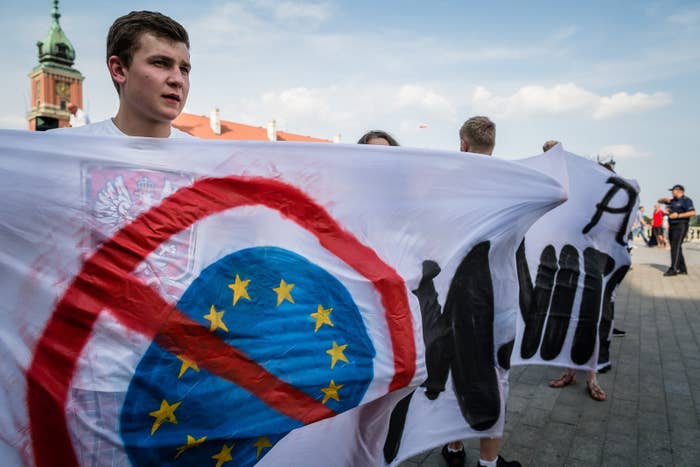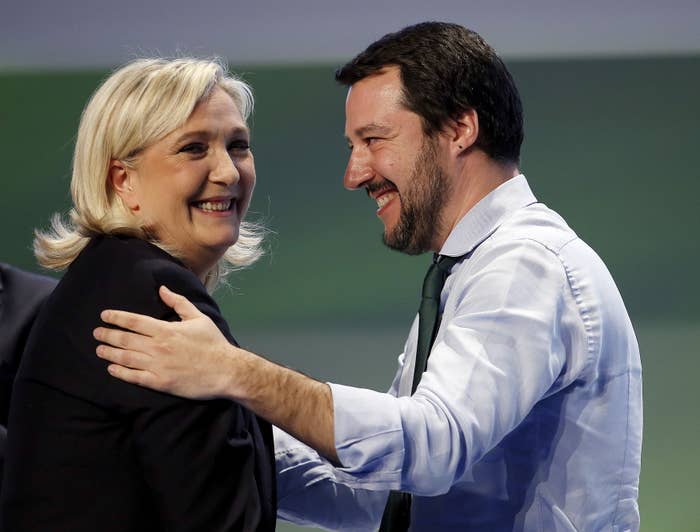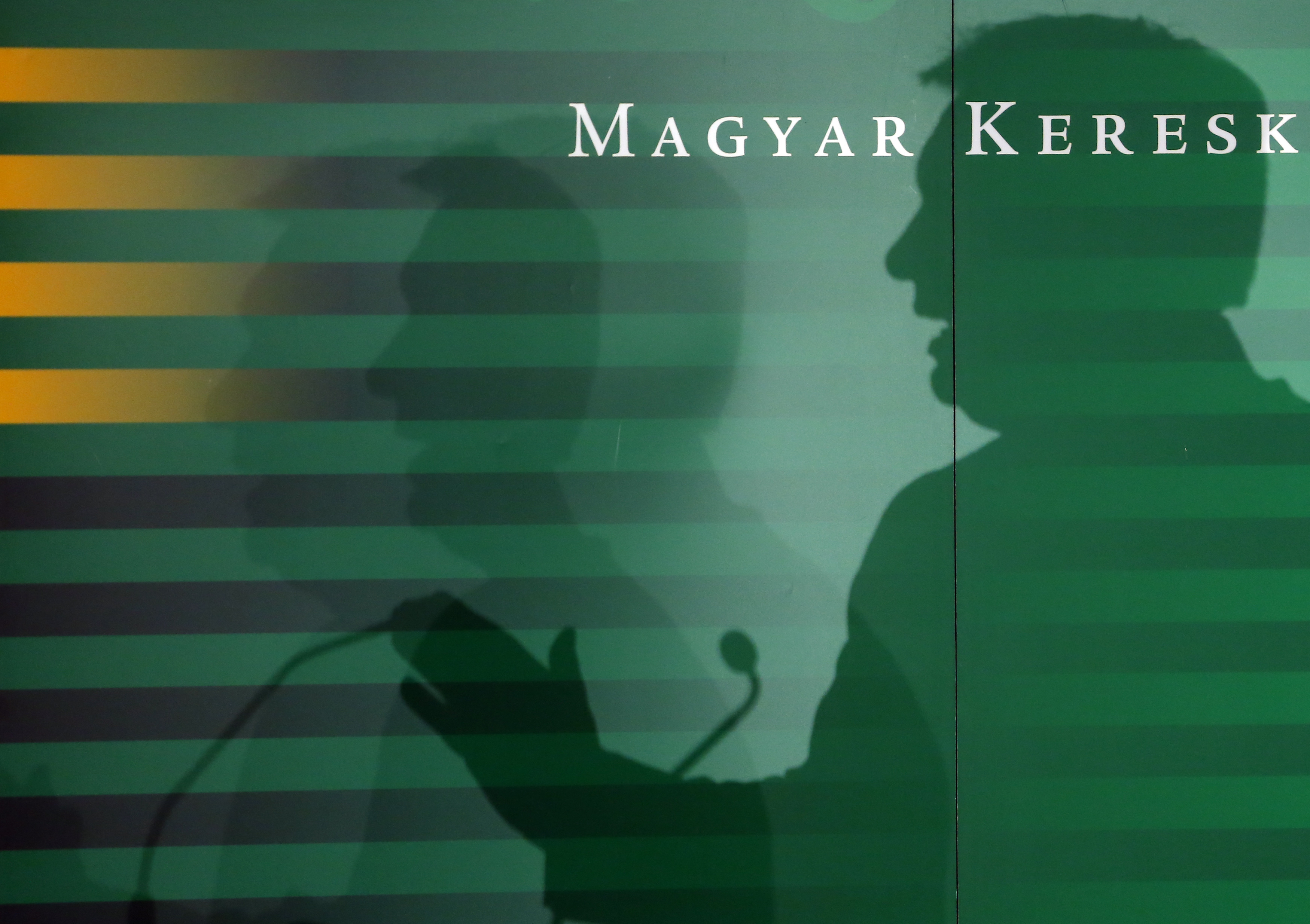
Britain's European Union partners are increasingly worried that a UK vote to leave would trigger similar referendums across the continent and embolden more member states to seek special exemptions from EU rules.
Senior officials from EU governments have told BuzzFeed News that their governments fear contagion from Brexit would touch every corner of the union, from votes on the future of EU membership, the euro, or the Schengen area, to exacerbating tensions between pro-European and pro-Russian faction in eastern European member states.
Several governments rank contagion as the issue of most concern if Leave prevails on 23 June. “Up until now the idea was that the EU was irreversible. This certainty would come less," one senior official from a major eurozone government told BuzzFeed News.
The same source said they rate their own government’s level of concern towards June’s referendum at “eight [on a scale out of 10], up there with the refugee crisis and the eurozone’s financial woes".
A poll released on Monday by Ipsos Mori shows that such concerns are rooted in public opinion, with significant majorities in several European countries – 55% in France and 58% in Italy – wanting to take the issue of EU membership to a vote. Almost half of respondents in the eight European countries surveyed believed Brexit would have a "domino effect" across the EU.
Top European officials – all of whom have been involved in EU discussions at the highest level – believe populist parties across the continent could use Brexit to fuel already growing anti-EU sentiment in their respective countries.
They say that parties such as the Freedom Party of Austria (which recently topped the first round of the country’s presidential elections), the Front National in France, the Party for Freedom in the Netherlands, the Danish People's Party, the Sweden Democrats, and Italy’s Five Star Movement and the Northern League could call for referendums, demand fundamental reform in the relationship between their own nations and the EU, and put into question some of Europe’s founding principles, such as freedom of movement.

One source who spoke on condition of anonymity said: “Denmark is looking very closely at the People’s Party reaction to the British referendum. ... As a country we have historically been among the most positive towards the EU. Although it is still quite high, this figure has dropped in recent years. We, as pro-European parties of government, are all at the moment vulnerable to EU-sceptic populism.”
None of the governments BuzzFeed News spoke to have detailed contingency plans already in place, but are starting to prepare for the possibility of Brexit and how they would engage with the UK. Their underlying assumption is that the British public will vote to remain in the EU, even though officials admit they gather from recent conversations with Downing Street, and diplomatic backchannels, that the probability of a Leave victory is higher than hoped.
“Up until now the possibility of Brexit was mostly viewed as an intellectual sideshow, and our hope is for a strong Remain win [more than 55%]," a French official told BuzzFeed News. "But the shock of an exit would make parties act fast, and while there are no detailed plans, we are starting to prepare for the possibility.”
They said that if Britain votes to leave, calls for a referendum on France's status in the EU could become one of the top issues during next year’s presidential election.
However, the same official isn’t convinced that the Front National will ultimately choose to campaign for a straight in/out vote on EU or euro membership, and speculates that the party could instead question one specific aspect of the EU, such as pulling France out of Schengen, the agreement that allows visa-free travel within most of Europe's economic area.
According to multiple sources, the issue of contagion will not be limited to how populist parties in western Europe react to a potential Brexit.
One official said the reaction among more recent EU members in eastern Europe should also be followed closely. On one, immediate, level, there are countries such as Hungary staging referendums to refuse a quota system for the relocation of refugees.
On a deeper level, the official said, a British exit could heighten tensions between pro-European and pro-Russian sections of their populations. However, the source said the EU was confident it could contain this. “Many such countries joined the EU with the same motivation they join NATO: for security and geopolitical reasons – and their concerns are the same with or without the UK.”
A French government official said that the best way to address these particular worries would be for Europe’s core countries – mainly France, Italy, and Germany –to send a strong signal of unity immediately after a UK vote. But the same official was keen to stress his government's view that such a message, and these issues, are ultimately independent of the Brexit debate because security concerns and the future of the EU go beyond Britain's possible departure.

A separate source from another of the eurozone’s larger economies said that even countries that have so far been relatively immune to the rise of anti-euro parties, such as Spain and Germany, could be affected by contagion.
An Italian official suggested that in the immediate term the loudest voices for referendums are likely to come from secessionist movements in Scotland and Catalonia. Nicola Sturgeon, SNP leader and Scotland’s first minister, has already made clear that Scotland could hold a second independence referendum if the rest of the UK votes to leave the EU.
More recently, Heinz-Christian Strache, leader of the right-wing Freedom Party of Austria, said South Tyrol, a region annexed by Italy in 1918, should be granted the right to decide whether it wants to remain an autonomous Italian region or become a part of Austria. Strache's party has a strong chance of winning Austria's presidency in a run-off vote in two weeks time.
Although the risk and fear of contagion is real and shared across Europe, views on the longer-term impact on both the UK and the EU are less unanimous.
The more pessimistic end of the spectrum includes former Greek finance minister Yanis Varoufakis, who, in an interview last month, told BuzzFeed News: “Brexit would speed up the disintegration of Europe, this would create a black hole, and Britain would be sucked in even if it voted to leave.”
French and Italian officials have a more optimistic view. Officials from both nations share the belief that with or without the UK, Europe’s bigger issue will be setting a vision and future path for the EU on multiple levels from common policies to greater eurozone integration.
“The key is a vision for the future of EU integration," one official said. Contagion won’t ultimately change the European project, and it can be contained, they said, adding that several countries have opt-outs on specific issues and others’ concerns would ultimately remain the same with or without the UK.
The source also predicted that market turbulence caused by a British exit, and the turmoil that would follow in the UK, would put many voters elsewhere off the idea of leaving the EU. “The core EU group would have to move forward."
However, northern European countries are more likely to find life without the UK less comfortable, as the balance of power would shift south, possibly impacting on EU policies on competitiveness, market regulation, and free trade.
German chancellor Angela Merkel has cited Britain's view on these issues when making the case for the UK's continued membership. "Chancellor Merkel has repeatedly underlined the importance of Great Britain’s membership in the EU," a spokesperson for the German government told BuzzFeed News.
Or as one Danish official put it: “A Brexit would put us in an extremely difficult situation."
